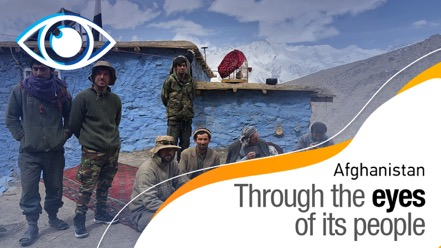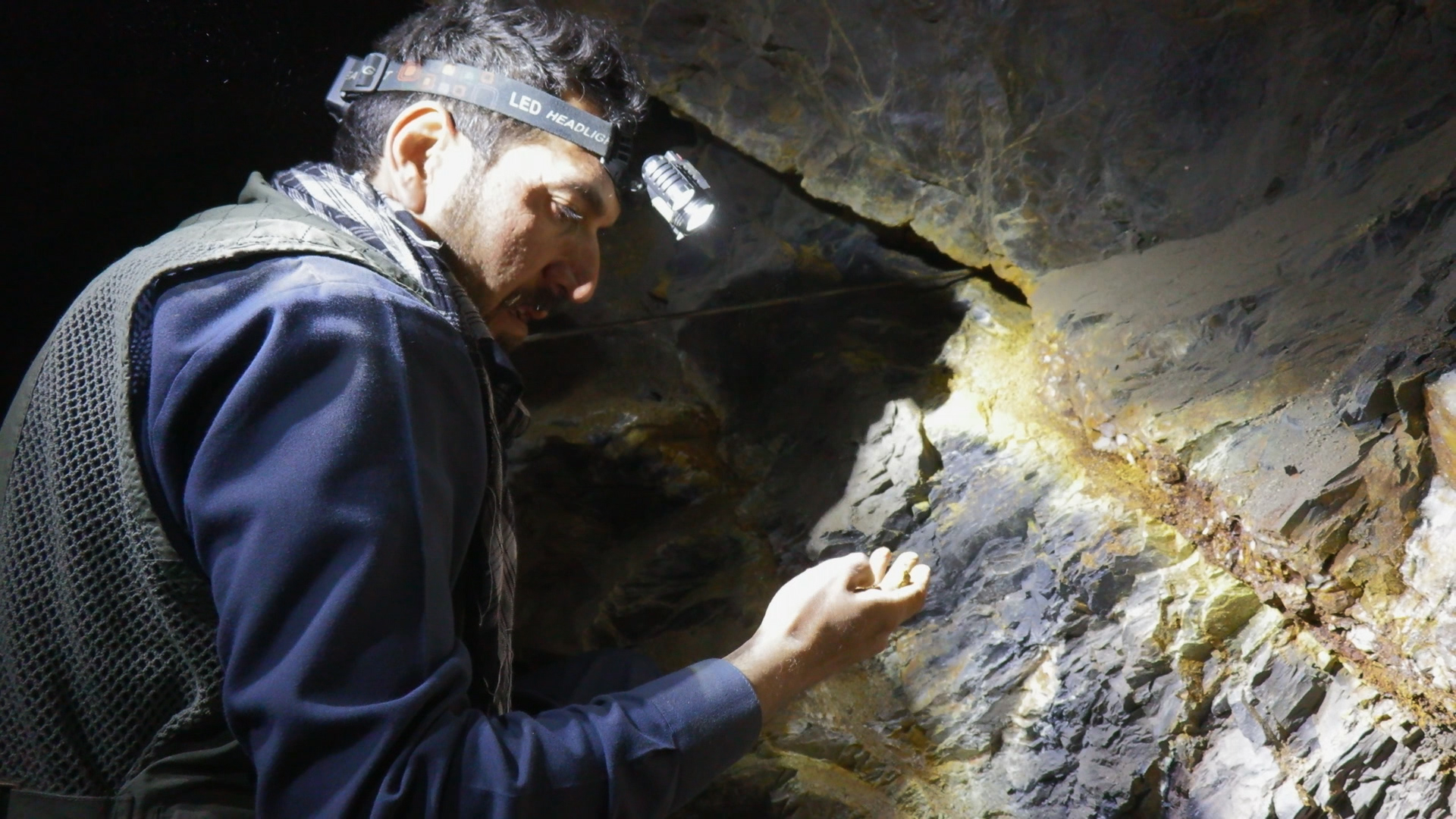

Afghanistan's Panjshir Valley is home to one of the richest supplies of gems in the world. But the big challenge is getting them out with a war going on.
In Afghanistan, people know all that glitters is not gold. Massoud Sultani, an emerald miner, proudly shows off sapphires and rubies, but more than anything he says Afghanistan is home to a rich treasure trove of emeralds.
"These stones are sold at high prices at international markets, but unfortunately here in Afghanistan, they are sold for very low prices," Sultani said.
Legally, gems and semi-precious stones are sold along Kabul's Chicken Street. A small mountain of a blue stone called Lapis rests in the bowels of a shop, waiting to be polished. Afterward, they will wait even longer for a buyer to come along. There's not much business in a war zone.

Massoud Sultani looks over rocks and rubble trying to find evidence of emeralds inside his mine. /CGTN Photo
So, Sultani says a lot of the mining is illegal, and most gems are smuggled out of Afghanistan with the government fully aware of the problems.
"If the Afghan government would invest in the gemstone industry, I am sure they would benefit, something like 300 or 400 million dollars over the course of two or three years," said Sultani.
It may very well be an overstatement. However, to back up his point, Sultani offered to take CGTN to the heart of the emerald mines in the mountains of Panjshir Valley. The team passes dozens of mines and the young and old, poring through rubble for a hidden gem.
The mines are simply holes punched into the mountain by mujaheddin fighters over the years. The Taliban has never made it into the region, but warlords have, controlling illegal mining and smuggling.
"I can tell you the government only has control of about two to three percent of the mines here, that is it. 95 percent of them operate illegally," said Sultani.
After several hours, the team reaches the base camp of Sultani's mine, which he says is legal, passed down through his family over generations. Inside, it's about what you would expect. It operates about safely as anything in Afghanistan. A few holes are drilled, in go the explosives, then you literally run for it. This is exactly why the government makes it nearly impossible to legally export emeralds. They are fragile, much more fragile than a diamond, and are easily destroyed.

Miners begin to dig a new path back down the mountain after an avalanche covers up the trail. /CGTN Photo
"This is the challenge we face in the Panjshir, extracting emeralds. We use explosives to reach the gems, and that ends up damaging the stones and lowering the quality," said Sultani.
The Afghan government wants a halt of this type of mining until there is peace in the country. It wants to preserve the limited amount of emeralds and other gems until modern, proper mining equipment can be used.
Sultani brought the CGTN team there because he wants to show off the region's potential. Sultani is convinced he will find gems on this day and orders one more blast. This time the team decides to wait outside the mine. At nearly four thousand meters, it is the first really warm day of the season, which is melting the snow. Suddenly, a powerful blast rips the region apart. The locals say we are lucky to be alive. The mining goes on the way it always has with no chance of ending the cycle of danger and yielding slim rewards.

Copyright © 2018 CGTN. Beijing ICP prepared NO.16065310-3
Copyright © 2018 CGTN. Beijing ICP prepared NO.16065310-3